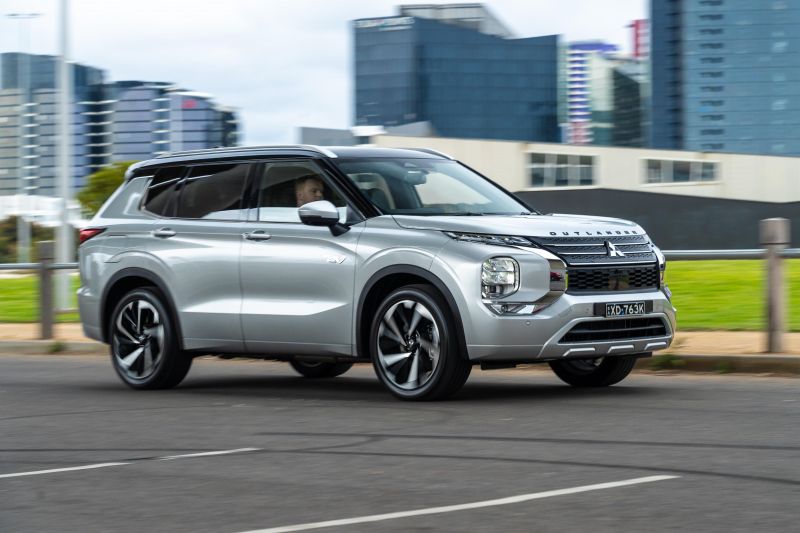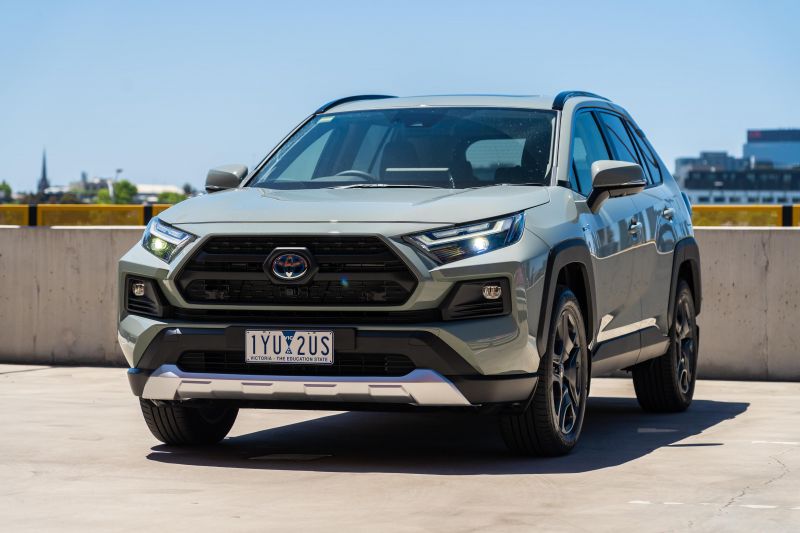The Electrical Car Council (EVC) claimed a serious win at the moment, reporting greater than 100,000 electrical automobile (EV) gross sales in Australia to this point this 12 months – which might be a big milestone for the takeup of battery-powered autos on this nation.
Nevertheless, the foyer group didn’t disclose a serious caveat: the determine consists of plug-in hybrid autos (PHEVs), which may be recharged externally however are additionally fitted with petrol engines.
In a media assertion, the EVC stated its personal and public information, such because the month-to-month VFACTS report from the Federal Chamber of Automotive Industries (FCAI), confirmed Australians bought greater than 100,000 EVs between January and November 2024.
This determine, it claims, breaks the prevailing full-year report of “about 98,400 gross sales”, set in 2023.
100s of latest automotive offers can be found by way of CarExpert proper now. Get the specialists in your aspect and rating an awesome deal. Browse now.
“2024 has been a record-breaking 12 months for EV uptake in Australia, with new gross sales surpassing 100,000 for the primary time in a 12 months – and that’s earlier than the 12 months has even ended,” stated the EVC’s Head of Coverage, Authorized and Advocacy, Aman Gaur, in at the moment’s media launch.
Nevertheless, the EVC didn’t make a transparent distinction between battery-electric autos – extensively accepted because the true definition of an EV – and PHEVs.
When the 2 figures are break up from the foyer group’s month-to-month studies and VFACTS, the true year-to-date EV gross sales determine is 82,960 between January and November.
PHEVs have contributed 20,543 gross sales to the mixed whole of 103,503 externally rechargeable autos bought this 12 months.
Whereas that is larger than final 12 months’s determine of 94,429 – achieved by way of the sale of 87,217 EVs and 11,212 PHEVs – it doesn’t inform the total story of Australia’s electrical and plug-in hybrid market in 2024.
The 82,690 EVs bought in Australia from January to November characterize a 2.8 per cent improve on the identical interval in 2023. That is towards a market which has risen by 1.7 per cent.
EVs account for 7.3 per cent of Australia’s new automobile market, nonetheless, their fee of gross sales development has cooled considerably in comparison with 2023, when by the tip of the 12 months that they had skilled a 161 per cent leap in gross sales.
PHEVs, in the meantime, account for simply 1.8 per cent of new-vehicle gross sales regionally, however their gross sales development is presently 100 per cent larger than in the identical interval final 12 months.
Although PHEVs may be charged by way of a devoted port and run in electric-only modes to drive restricted distances, in addition they incorporate a petroleum engine.
The EVC has not made this clear in its most up-to-date media statements, and in its end-of-2023 ‘Australian Electrical Car Trade Recap’ it solely clarifies its stance on combining EV and PHEV gross sales within the fineprint.
“Per worldwide literature, and teams such because the Worldwide Vitality Company, the EVC defines electrical autos as any automobile that may be plugged in to cost immediately utilizing electrical energy. This consists of each battery electrical autos (BEVs) and plug-in hybrid electrical autos (PHEVs),” the fineprint reads.
Mixed EV and PHEV gross sales nonetheless path these of conventional hybrids, some 158,242 examples of which have been bought to this point this 12 months to make up nearly 14 per cent of the general market. This has largely been pushed by market chief Toyota.
The EVC is the unique writer of gross sales information for Tesla and Polestar in Australia, after the 2 specialist EV manufacturers stopped reporting to the FCAI in July and March, respectively, because of the automotive business foyer group’s stance on the then-proposed New Car Effectivity Normal (NVES).
Set to come back into impact on January 1, 2025, NVES will apply penalties or credit to carmakers for exceeding or assembly fleet-wide emissions targets, with monetary penalties to be enforced from July 1 subsequent 12 months.
The NVES has positioned better emphasis on carmakers promoting cleaner and extra environment friendly autos, which the EVC says will profit consumers.
“Looking forward to 2025, we’re optimistic that EV [including PHEV] adoption in Australia will proceed to develop, particularly with the introduction of the New Car Effectivity Normal, which is ready to ship much more reasonably priced and a better alternative of low and nil emissions automobiles,” it stated in at the moment’s press launch.
MORE: VFACTS November 2024: Personal gross sales droop, RAV4 maintains lead

